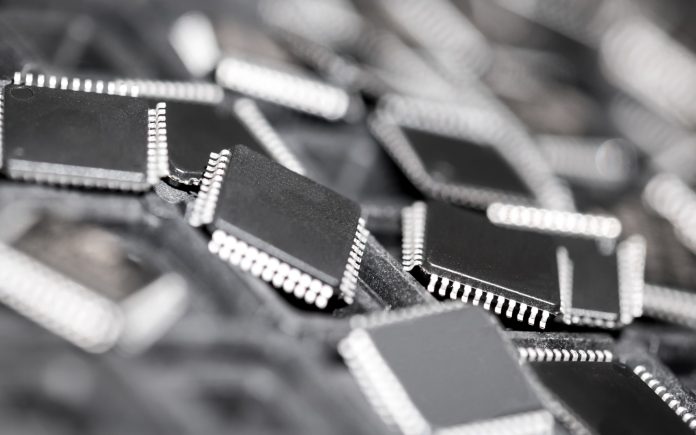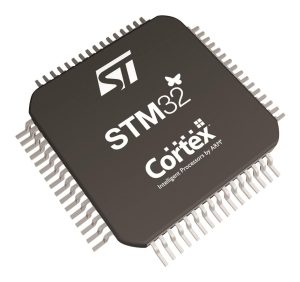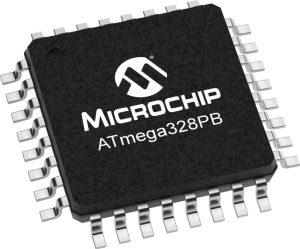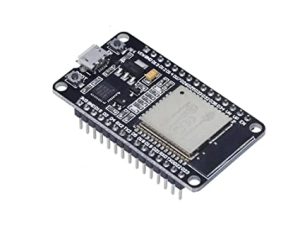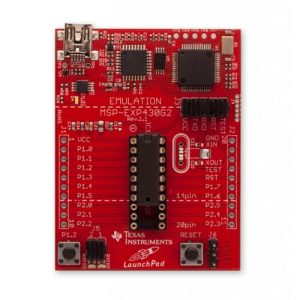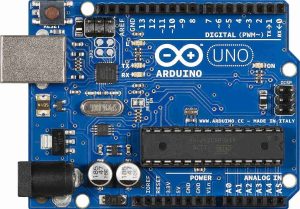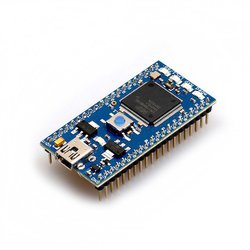Industry 4.0 initiatives are ramping up, so manufacturers must embrace new technologies to remain competitive. While an ever-growing array of off-the-shelf solutions is available to help meet your needs, sometimes it’s better to develop your own systems. To do that, you’ll need to find the best microcontrollers to drive your electronics.
Microcontrollers (MCUs) are essentially small computers dedicated to running a single program. These components are the brains of the devices they inhabit and considerably impact your electronics’ overall performance, cost, size and power consumption. Given that weight, selecting the right one is a crucial consideration.
Here are eight of the best microcontrollers on the market to help you develop the best Industry 4.0 devices possible.
1. STM32
The STM32 family of MCUs covers some of the most popular 32-bit microcontrollers available today. These components from STMicro — the world’s third-largest MCU manufacturer — feature up to seven cores in their CPU and thousands of kilobytes (KB) in flash memory. This makes their upper-end offerings some of the most powerful on the market.
STM32 MCUs come in a wide array of power, size and functionality, with a similar range of supported hardware and debugging software. This variety and support make them relatively easy to customize and program, so you can use the same MCU types in multiple devices.
2. PIC32
Microchip’s PIC32 product line is a popular alternative to the STM32 family. It’s a highly versatile series, including support for serial communication, programmable memory, motor controls and more. While its development tools may be more expensive than STMicro’s, its support for open-source and third-party tools still keeps it accessible.
The PIC32 family can feature up to 2,048 KB of flash memory and 640 KB of SRAM, offering exceptional performance. It also includes a few ultra-low-power options and support for touch-screen components.
3. ATmega328PB
Microchip makes another one of the best microcontrollers today in the ATmega328PB. Unlike the PIC32 and STM32, this is an 8-bit MCU, making it less powerful but smaller and more energy-efficient. This combination of low power and a compact form factor makes it an ideal choice for smaller, single-purpose applications.
The ATmega328PB offers 32 KB of flash memory, 4 KB of RAM and operation as low as 2.7 volts. It also has a wide body of support thanks to being the 8-bit MCU of choice for Arduino, one of the most popular open-source hardware providers.
4. ESP32
Espressif’s ESP32 may be the best MCU for your industry devices if you need something more feature-rich. This is a 32-bit microcontroller like the PIC32 and STM32 but sets itself apart in its support for wireless communication protocols, making it ideal for Internet of Things (IoT) devices.
The ESP32 supports Bluetooth and Wi-Fi, two of the most popular IoT connectivity options for manufacturers today. It also has security features like hardware acceleration and flash encryption. Those built-in security tools are hard to ignore as IoT attacks against manufacturers rise.
5. ATtiny85
Factory floor space is often limited, so keeping physical size in mind as you design Industry 4.0 systems is important. The tiny form factor of the aptly named ATtiny85 helps meet that goal. The ATtiny85 is just a few millimeters long but still offers six I/O pins, making it one of the most versatile and convenient chips for its size.
You will have to sacrifice some performance for a size this small. The ATtiny85 only has 8 KB of flash memory and 512 bytes of RAM. Still, that’s sufficient for many low-power, simple applications, so it’s worth consideration.
6. MSP430
So far, all the microcontrollers on this list have been 32-bit or 8-bit chips, but sometimes you need something in the middle. The 16-bit MSP430 from Texas Instruments is one of the best options available in that range.
The MSP430 series of MCUs offers over 256 KB of memory and 80 pins. Some iterations also support simultaneous measurements in different inputs and touch sensing, making these microcontrollers highly versatile. The MSP430 family is also relatively affordable, so it’s an excellent choice for developing a wider range of Industry 4.0 devices.
7. Arduino Uno Rev3
Ease of implementation is another important factor to consider when looking for the best microcontrollers for your devices. MCUs read just one line of code at a time, so they’re generally easy to program, but they can still be complex if you have little experience with coding. The Arduino Uno Rev3 is worth looking into if you fall into that category.
The Uno Rev3 builds on the Atmega328PB but comes with Arduino’s software and development tools, as well as several additional hardware components. This makes it one of the most versatile and user-friendly boards available.
8. Mbed LPC1768
The Mbed LPC1768 may be the best microcontroller for you if you want something accessible but a little more complex than the Uno Rev3. This chip builds on the NXP LPC1768 MCU with extra development tools and support.
The LPC1768 supports USB and ethernet applications and offers 512 KB of flash memory, making it a more powerful system than the Rev3. A wide body of support helps keep it accessible and easy to program despite this higher functionality.
How to Find the Best Microcontroller for Your Needs
It’s important to recognize that learning about the best microcontrollers on the market is just the first step in finding your ideal solution. Each of these MCUs has unique strengths and weaknesses, so there’s no single answer to which is suitable for every application.
A lack of IT talent and resources is one of the biggest barriers to Industry 4.0, with most manufacturers reporting not having sufficient staff to embrace digital transformation. Given that shortage, you should narrow your search by which MCUs are the easiest to program and implement. Be sure to form a specific budget to narrow down your choices financially.
Before selecting an MCU, outline the technologies you want to develop your goals for those devices. These guidelines will make it easier to see which features you need and which you can compromise on. Communicate these goals and restrictions with MCU providers to help find the ideal components for you.
The Best Microcontrollers to Unlock Your Industry 4.0 Potential
The right microcontroller lets you develop Industry 4.0 technologies targeted at your specific needs and goals, allowing you to embrace digital transformation more effectively. The industry is becoming increasingly digitized and is vital to staying competitive, so it’s important to keep on top of the best microcontrollers in today’s market.


